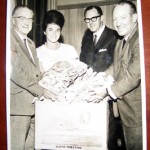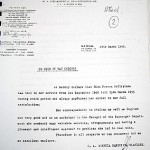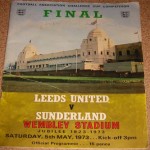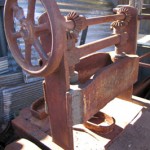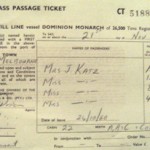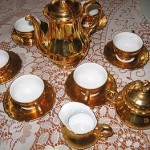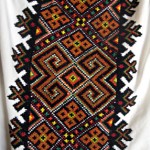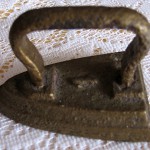(nee Dellepiane)
Italian
Genoa, Italy
Trieste, Italy on 4 April 1959
Melbourne on 1 May 1959
Bonegilla for 3 weeks
Methodist girls’ hostel in Surry Hills, Sydney
Assistant interpreter at Bonegilla
Office work in Sydney; La Fiamma newspaper in Leichhardt; Italian language radio programs for 2SM, 2KY, 2CH and SBS; founding member of SBS, Ethnic Communities’ Council and Australian Republican Movement; Member of the NSW Legislative Council.
I was born in Genoa – a beautiful old town and great port in the north of Italy – in 1937. I had a mother, father and sister. Unfortunately my parents didn’t get on very well. My mother fell in love with another man and left my father. We had a very unhappy childhood because my mother wasn’t there. She went to Argentina and I never saw her again from the age of nine.
I studied in Italy to [complete] my leaving certificate. There were a lot of international companies and if you wanted a good job you had to speak English. [When] I was 18, my father sent me to England to study for about a year at the international college in London.
When I went back to Italy I worked a couple of years for the Dutch Maritime Agency, a big shipping company, doing their correspondence in English. There was a big insurgency in Indonesia and it didn’t want Dutch ships there, so our ships started to come to Australia. In those days so many were migrating to Australia, we started working with the Australian Embassy and [they] opened an office in Genoa.
I’ve always loved travelling and going to England to study opened a brand, new world to me. I wanted to leave Italy to see the world and meet new people. I love my hometown [but] going back to Genoa felt restrictive. My father was very strict and I was not allowed to go out at night, have boyfriends. It was a difficult life. Girls were very much protected.
I loved the United States but had nobody there and couldn’t get a sponsored passage. The Australian office said, “Why don’t you go to Australia? You only have to pay £10 and stay there two years.” In ’57-’59, no-one knew much about Australia, so I started reading. I thought what have I got to lose, it’s two years, I see another part of the world, I only pay £10, which even in those days was very little.
Most of the immigrants in those days came from northern Europe. The Australians had a pecking order. They preferred first the British, then the northern Europeans, then they had to take the southern Europeans because they needed numbers. The reality was most Italians and Greeks had to pay their own trip; the ones who needed the money the most had to pay.
A few northern Italians did come under the £10 [assisted] passage, generally from the Veneto region, but if you look at anyone coming from Rome downwards, they all had to pay for their own trip. I think there was a subtle discrimination; the Australian authorities preferred the northern Italians who were better known for hard work and discipline. Southern Italians were not seen as good immigrants. It was a real prejudice.
I was a northern Italian and a young girl and [Australia] needed women; a lot of the immigrants [were] single men. So I was an assisted immigrant [and] it was very easy for me. By the time I had the papers organised, I told my father who wasn’t pleased at all. He knew I was stubborn and [that he] couldn’t do anything as I was of legal age.
My father and sister came to see me off in Trieste, the other side of Italy. I left on 4 April in 1959, all by myself. It was a bit of a shock. I wanted so much to go but once I was on board the Aurelia I thought, what have I done? So far away, [what] if anything happens? I was scared. I was only 21.
The journey was okay for the simple reason I was asked if I’d like to teach elementary English to immigrants. That was lovely. So I started having classes on the boat. I would show them a carrot and say “this is a carrot” and they would look blank. Unless I said carota, they wouldn’t understand. People had very little education [and] didn’t know what a noun or adjective was.
Being a girl by myself I might have been in a bit of danger, there was a lot of single men on board. The fact I was the teacher gave me a preferential status so I wasn’t bothered by anybody. I was treated deferentially by the other immigrants. I was sharing a cabin with an Italian woman of Australian nationality with a little baby. It was very nice; I think the Dutch Maritime Agency had highly recommended me. However, it was still very lonely, very hard.
By the time we reached Fremantle, I was given a cheque for £20 for the lessons I gave. I thought it was voluntary work for a few privileges on board but he actually paid me. So I was £10 up and made a profit before I even arrived!
The trip was about four weeks. I arrived on 1 May 1959 in Melbourne, where the people with no relatives or anybody landed. The confusion and distress; I can hardly think back without getting a panic attack. It was so difficult and then we’re put on this train that went on and on. Where are we going? Nobody was around on the train to tell us anything. I think we were on the train for eight hours. You know I love Australia but our countryside is not the most attractive in the world! It all looked the same, eucalyptus after eucalyptus!
We were sent to Bonegilla migrant camp where people waited for a job. It was night when we arrived [and] I had to help to interpret to say, “You go to hut number one.” Because I was an assistant I was given a hut of my own which was very good but also quite dangerous. There were a lot of very lonely, single men and I was scared. There was a wardrobe and when I went to bed I put it against the front door because you could hardly lock [it]. I remember going to bed crying and praying. I’m not incredibly religious, but I really prayed for God to help me. It was a traumatic time not knowing what would happen.
We went to the dining room and the food was awful. I think it was lamb but we were not used to that terrible smell. Peas were as hard as bullets! Fortunately, speaking a bit of English, I was able to communicate to get milk for the children. I could see the anxiety on the faces of some families.
I hated Bonegilla, it was a horrible place. I was a city girl from Genoa in a beautiful street with beautiful buildings. [Did] I come to Australia to go in a rural, decrepit area? I just couldn’t stand it. They said I was going to stay and work as an assistant interpreter but I insisted in going to Sydney. They said I can, but I’ve got to pay for my own trip. Fortunately I had a bit of money and took the train to Sydney.
The only thing I knew about Sydney was another woman who used to work for the Australian Embassy, Mitty. She gave me her address in Sydney, a Methodist girls’ hostel. That was the only address I had of anybody in Sydney.
I got a taxi from Central and went straight to this place in Albion Street, Surry Hills. It was trustworthy, generally for Australian country girls who came to Sydney to work. It was very nice. They had more compassion and understanding. I could see straight away they were decent people. I can’t say a bad word. I felt safe. I felt secure. On top of it I was sharing a room with an Italian girl, Mitty.
I started looking for a job. Straight away I was told there was a job for an Italian shipping company but I didn’t want to work for Italians. The employment office gave me a job in an office but I felt so alienated by the surroundings that I went in at 9am and never went back after lunch! It was just such a cold place [and] nobody spoke to me. I was already so lonely and scared of everything plus to have no feeling of friendship, I just wanted out [and] understood it would be better to work with Italians.
I told Mitty and she said to go to the Italian newspaper, La Fiamma. They offered me a job straight away doing office work. I had a very good speaking voice so after about a year they offered me to do their radio program, The Italian Hour, [for] three hours on 2SM on a Saturday night, which I enjoyed. I produced the program and wrote the script in English and Italian. Every program in those days had to be translated, you could not do a program how they do now, all in Italian.
After about six to eight months, Mitty and I rented a small apartment underneath a house in Longueville which was very nice. I didn’t earn much money on my basic wage at La Fiamma but at night I started teaching Italian to Australians and English to immigrants and so that was quite a bit of money. I enjoyed both. In one of those classes, my husband, Joe, was coming to learn Italian, the language of his grandfather. The class would mix at the end to have a drink and he asked me out. We got married on 29 April 1961. My wish of staying in Australia for two years and going to the United States was now finished!
By then we had bought a block of land in Clontarf. We rented a tiny apartment in North Sydney for 18 months and both of us were working and saving as much as possible. At the weekend we’d work on the block and literally build the foundation ourselves – Joe is an architect. As soon as there was a roof on the house, although it was completely unfinished, we moved in there to save money. We lived there for nearly 40 years.
I worked at 2SM and then I had a program on 2KY and 2CH until I had twins in 1966. Not having family, it really was a full-time job. It took me 10 years to go back to Italy. I went in 1968 when the twins were nearly two and I saw my father and sister again.
When the children started going to kindergarten I started working again for La Fiamma part-time. Through La Fiamma I knew a lot of politicians amongst whom, Al Grassby, the Minister for Immigration, who was involved with organising ethnic structures. I was appointed to the taskforce on communication because of my experience in broadcasting. Grassby wanted to set up a radio station broadcasting in different languages. He lost his seat in 1974 but became Commissioner for Community Relations so our work continued in setting up two structures: the Ethnic Communities’ Council and SBS, both in 1975.
I was one of the founders of SBS. It was an experimental radio station [at] Five Dock. It was all volunteer; the government gave only money for the antenna [and] studios. We had to provide our own tapes, everything. It was costing me a lot of money. I worked for about a year setting it up. I used to write all the script, produce the pieces, I loved it. It was very successful. We had thousands of letters from people wanting the experiment to continue, so after three months it continued for another six months. Then they started paying us $20 a week. A fellow used to come in to talk about social security [and] another about sport and we used to divide the $20.
I applied for a Churchill Fellowship and won it in 1977. That meant a lot to me, to study the integration of ethnic groups in other countries like Canada and the United States, and I worked with the Community Relations Commissioner in London.
I became a member of the Labor Party in 1972 [and] when I came back from the Churchill Fellowship I started becoming active. I was working at the polling booth because I was well known. In those days a lot of people didn’t even know how to vote. Italians came to the booth and said, “Oh Mrs Arena, how do I vote?” Believe me, I was very valuable to the Labor Party!!
I got to know Neville Wran (NSW Premier 1976-86) very well. We became such good friends. I had stood for the Federal Senate in 1979 and it was a disaster. I hadn’t joined either the Right or Left factions so neither had a responsibility to me. After the humiliating defeat, Neville rang and offered me a position in the Upper House of NSW.
I was elected in September 1981 and stayed in NSW Parliament for 18 years until 1999. I was the first woman of Italian background to be elected to an Australian Parliament and the second woman of non Anglo-Celtic background. A lot of people saw it as a role model. It was important for a lot of women, especially in our community with a lot of machismo or chauvinism, so it was quite a breakthrough.
When I first got into Parliament I had been working with a lot of “ethnic” women, completely isolated from power. I decided to form a Women’s Network. We ran it from Parliament House and organised a dinner once every few months with a Minister or Premier. We tried to be bipartisan, although I was a Labor woman. If you had to lobby you had to be good friends with everybody! Five women would speak to the Minister for 25 minutes and the Minister had 10 minutes to respond. It was good for the women to have that exposure.
Then I thought my own women in the Italian community had been voiceless all these years. The men always ran the show [with] a woman behind to keep the family together and do traditional things. I set up the Italian Australian Women’s Association, launched in Sydney in 1985 by a terrific Senator from Italy, Elena Marinucci, to tell us about the women’s movement [there].
I’ve always been a strong republican. After five years [in Australia] I got a letter from Alexander Downer Senior who was then Minister for Immigration, asking me if I’d like to be an Australian citizen. I sent him a letter and said, “Dear Mr Downer, I very much would like to become an Australian citizen and love this country, but I don’t want to swear allegiance to the Queen, because the Queen is the Queen of England. If you allow me to swear allegiance to Australia, I will become an Australian citizen.” Of course I never even got a reply!
So I didn’t become an Australian citizen, but in 1968, when we were going to Italy, it was a time of turmoil in Europe and I didn’t think travelling on my Italian passport with the children was the right thing to do. So I swallowed my pride [and] went to a very lonely naturalisation ceremony, arriving by myself. The Mayor couldn’t believe it! I felt a bit embarrassed [when] I swore allegiance to the Queen and was feeling a fraud!
I wrote to Neville Wran and told him we needed a structure for the republican movement. I became the honorary secretary in 1991. I involved Faith Bandler, an Aboriginal woman, and people of other ethnic backgrounds to be really inclusive so the Australian republican movement didn’t belong to the Anglo-Celtics or “the ethnics”. It was a very exciting time and a lot of work. I’m proud of that.
I’m also still very proud of my beautiful hometown. In 2004, Genoa, the capital of the Liguria region, was named the cultural capital of Europe by the European Community. The Mayor of Genoa wanted to pay tribute to those who have honoured the name of Liguria. We were invited to the big public reception and I was given the City of Genoa Award as an “illustrious Ligurian”, something that touched me really deeply.
Interviewed by:
Andrea Fernandes, NSW Migration Heritage Centre
2 April 2007



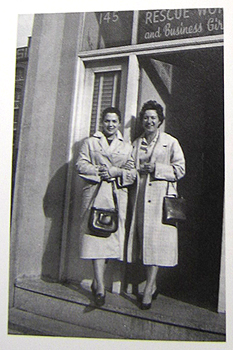
!["Mr Lobstein asked if I'd like to teach elementary English to immigrants on the boat. Being a girl by myself I might have been in a bit of danger, but the fact I was the teacher [meant] I was treated deferentially by the other immigrants. By the time we reached Fremantle, I was given a cheque for £20 which I didn't expect at all. I came over on a £10 passage so I had made a profit before I even arrived!"](../../../cms/wp-content/uploads/2008/07/letter1-150x150.jpg)
